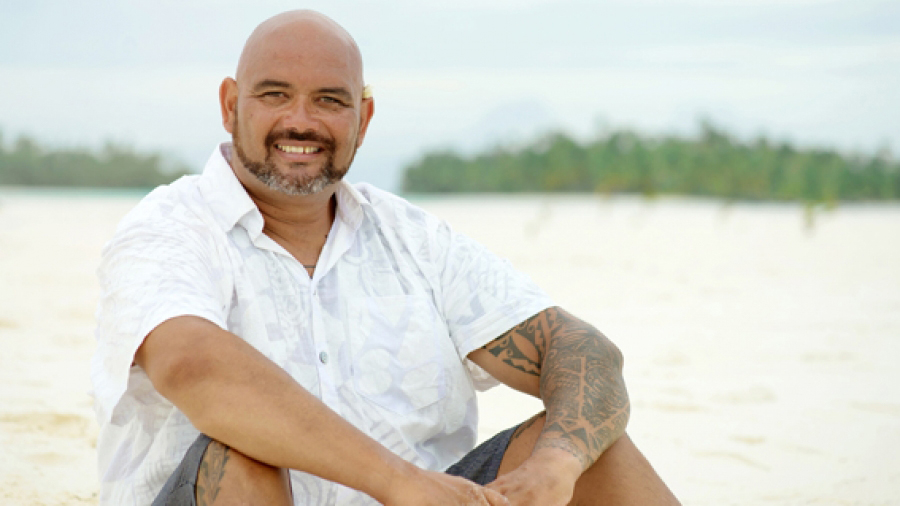Thomas Wynne: From simply surviving to thriving
Saturday 24 February 2024 | Written by Thomas Tarurongo Wynne | Published in Editorials, Opinion

Columnist Thomas Tarurongo Wynne. Photo: CI NEWS/16040843
Cook Islanders in New Zealand have built strong communities and faced challenges, but the question remains whether their dreams of prosperity have been met and whether they should reconnect with their island homes. By Thomas Tarurongo Wynne.
State highway one in Aotearoa New Zealand begins at a place called Waihopai or Bluff, and driving through the quiet streets, one can’t help but notice the now empty shell that once was a bustling Ocean Beach freezing works. So many Cook Islands fathers, brothers and families made their way to sites like these to work and feed their families, always with the dream that one day they would take their families, and their hard-earned monies back home again.
As we drove past with Cook Islands community leader George Ngaei, you could almost hear the singing of our people, the laughter and conversations, the footprint of our blood, sweat and tears, that started in places like Waihopai, Bluff to Otipoti, Dunedin, Ōtautahi, Christchurch, Te Whanganui, Wellington, Heretaunga, Hastings, Tokoroa, Kirikiriroa, Hamilton, to Tamaki Makaurau Auckland or the far reaches of the North. Our people have left a footprint of work, community and culture that continues today.
In a Radio New Zealand article in November 2021, Sinsemilla Joseph and Danny Raina, known as mum and dad of the group down at the Alliance Freezing works in Mataura, said “We’re not only here as individuals, we are here as representative of the Cook Islands. Whether you are from Raro, Atiu, Manihiki, etcetera. There are 15 Islands that we have scattered from. We are one big tight-knit family.”
“Being down here down South, especially from Invercargill to Mataura is like being like home – it’s not as busy as Auckland, you get along with people in the community. You see them in the community they come talk to you and you see them on the road and wave back – it’s good. Everyone is just going to buy a heater.”
Southern hospitality, well at least in Invercargill and Bluff, that I experienced; it is true how warm the people are and how welcoming. Driving back to Invercargill with George Ngaei after our trip to the end of the South Island, I saw a small church made of bricks that could maybe fit 10 people in it. George said it was built by Papa Brown, Kamana Kamana and other Cook Islanders in the 1950s.
It again symbolised our resilience and resourcefulness. In the freezing, blustery cold of these remote places, even church buildings were built so our people could come together and support each other. They sacrificed all to build for the next generation, and the one after that.
For all the challenges our communities face here in Aotearoa, there is a story to be told of the strength of our community, its dedication to hard work and sacrifice and the freezing works, the communities they sat in and the communities we built around them. My own uncles John and Teariki Taru worked at freezing works most of their lives; often, we became leaders in those workforces, rising to union delegates and company foreman because of our ability to navigate New Zealand and its culture and language.
We all have families that have moved to New Zealand, and we know also that this comes at a price and sometimes that price of disconnection to home is huge, especially around language retention and disconnection to land and family. But we remain courageous and resilient because that is who we are, and who we have been since we took those same skills to navigate the expanse of Moana nui A Kiva.
Maybe it’s time to take stock as to whether our dreams and aspirations for prosperity have actually been met. Has the milk and honey flowed, or should we circle back home and connect again to the Island homes that our Vouvou and Metua left, and connect us again.
Meitaki ranuinui George Ngaei and the Pacific Island Advisory Charitable Trust, for facilitating our community that came to talk about the Land Laws changes, as well as Terry Nicholas who is leading the Hokonui Runanga Inc Health and Social Services Trust. Wherever we go, we survive, we build, we connect, and we support our hard work and families. The question, however, is: how do we move from simply surviving to actually thriving?














































